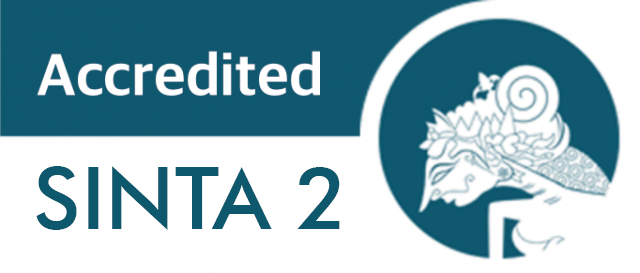Islamic Psycho-spiritual Education as a Holistic Solution to Alleviating Extreme Poverty in Indonesia
DOI:
https://doi.org/10.15408/tjems.v11i1.42131Keywords:
pendidikan Islam, kemiskinan ekstrim, pendekatan psikologis spiritual, pemberdayaan masyarakat, Islamic education, extreme poverty, psycho-spiritual approach, community empowermentAbstract
Abstract
This study explores the role of Islamic education through a psycho-spiritual approach in alleviating extreme poverty in Indonesia. Extreme poverty, which encompasses economic, social, psychological, and spiritual dimensions, requires a holistic approach to empowerment. Islamic education is more than just a transfer of knowledge; it shapes character and positive mentality through values such as patience, sincerity, and social care. This study employs a literature review method with a qualitative approach to analyze how psycho-spiritual education can be part of a sustainable solution. The findings indicate that integrating psycho-spiritual education into poverty alleviation programs can help build individuals’ mental and spiritual resilience. With collaboration between the government, Islamic educational institutions, and community organizations, this approach has the potential to be an effective strategy for addressing the challenges of extreme poverty. This research offers a new perspective on empowering communities through holistic education.
Abstrak
Penelitian ini mengeksplorasi peran pendidikan Islam melalui pendekatan psikologis spiritual dalam mengentaskan kemiskinan ekstrim di Indonesia. Kemiskinan ekstrim, yang tidak hanya terbatas pada aspek ekonomi tetapi juga mencakup dimensi sosial, psikologis, dan spiritual, memerlukan pendekatan holistik untuk pemberdayaannya. Pendidikan Islam berfungsi lebih dari sekadar transfer pengetahuan, melainkan membentuk karakter dan mentalitas positif melalui nilai-nilai seperti kesabaran, keikhlasan, dan kepedulian sosial. Studi ini menggunakan metode studi pustaka dengan pendekatan kualitatif untuk menganalisis bagaimana pendidikan psikologis spiritual dapat menjadi bagian dari solusi berkelanjutan. Hasil penelitian menunjukkan bahwa integrasi pendidikan psikologis spiritual dalam program pengentasan kemiskinan dapat membantu membangun ketahanan mental dan spiritual individu. Dengan kolaborasi antara pemerintah, lembaga pendidikan Islam, dan organisasi masyarakat, pendekatan ini berpotensi menjadi strategi yang efektif dalam menghadapi tantangan kemiskinan ekstrim. Penelitian ini menawarkan perspektif baru dalam pemberdayaan masyarakat melalui pendidikan yang holistik.
How to Cite: Dawam, A., & Syaidah, K. (2024). Islamic Psycho-spiritual Education as a Holistic Solution to Alleviating Extreme Poverty in Indonesia. TARBIYA: Journal of Education in Muslim Society, 11(1), 93-104. doi:10.15408/tjems.v11i1.42131.
References
Alkire, S., Kanagaratnam, U., & Suppa, N. (2021). The global Multidimensional Poverty Index (MPI) 2021. Oxford Poverty and Human Development Initiative.
Aprianto, N. E. K. (2018). Kemiskinan dalam perspektif ekonomi politik Islam. Islamiconomic: Jurnal Ekonomi Islam, 8(2). https://doi.org/10.32678/ijei.v8i2.60
Azra, A. (2015). Genealogy of Indonesian Islamic education: Roles in the modernization of Muslim society. Heritage of Nusantara: International Journal of Religious Literature and Heritage, 4(1), 85–114.
Badan Pusat Statistik (BPS). (2023). Profil kemiskinan di Indonesia Maret 2023. Badan Pusat Statistik.
Badan Pusat Statistik (BPS). (2023, November 19). Garis kemiskinan, jumlah, dan persentase penduduk miskin 2022. Badan Pusat Statistik. https://www.bps.go.id/id/statistics-table/3/ZG1oc2JVcHZhVkpSVDFscmQxTTVTMWxqT1hwMFVUMDkjMw==/garis-kemiskinan--jumlah--dan-persentase-penduduk-miskin--2022.html?year=2022
Creswell, J. W. (1998). Qualitative inquiry and research design: Choosing among five traditions. Thousand Oaks, CA: Sage Publications.
Hasan, N. (2019). Literatur keislaman generasi milenial: Transmisi, apropriasi, dan kontestasi. Pascasarjana UIN Sunan Kalijaga Press.
Jos, S., & Pandey, N. (2022). Influence of spiritual intelligence on happiness and well-being: A review. Journal of Mind and Society, 11(2), 121–128.
Kementerian Sosial. (2023, November 20). Keputusan Menteri Sosial Nomor 262/HUK/2022. Paralegal.id. https://paralegal.id/peraturan/keputusan-menteri-sosial-nomor-262-huk-2022/
Khaki, A. (2020). Investigating the effect of religious and Islamic teachings on calmness and mental health in educational spaces. Journal of Religion and Health.
Larlee, K. J. D. (2023, November 21). The psychological impact of poverty on seniors. Advancing Smartly. https://advancingsmartly.org/2016/11/21/the-psychological-impact-of-poverty-on-seniors/
Latief, H., & Nashir, H. (2020). Local dynamics and global engagements of the Islamic modernist movement in contemporary Indonesia: The case of Muhammadiyah (2000–2020). Journal of Current Southeast Asian Affairs, 39(2), 290–309.
Lukens-Bull, R. (2010). Madrasa by any other name: Pondok, pesantren, and Islamic schools in Indonesia and the larger Southeast Asian region. Journal of Indonesian Islam, 4(1), 1-21.
Mohtar, Y. M., Halim, L., Abd Rahman, N., Maat, S. M., & Iksan, Z. H. (2019). A model of interest in STEM careers among secondary school students. Journal of Baltic Science Education, 18(3), 404-416.
Mujib, A. (2015). Implementasi psiko-spiritual dalam pendidikan Islam. Madania, 19(2), 195-210.
Murtadlo, M., & dkk. (2017). Top 10 ekosantri: Pionir kemandirian pesantren.
Polkinghorne, D. E. (1989). Phenomenological research methods. In V. Braun & V. Clarke (Eds.), Successful qualitative research: A practical guide for beginners (pp. 77–92). Sage Publications.
Putri, G., & Muhajarah, K. (2024). Islam, Al-Qur’an, dan kesehatan mental: Hubungan antara spiritualitas dan kesejahteraan psikologis. Academia.edu.
Raco, J., Ohoitimur, J., & Sobon, K. (2019). Spirituality: The power of entrepreneurship. EMAJ: Emerging Markets Journal, 9(1), 28–35. https://doi.org/10.5195/emaj.2019.161
Raihani. (2012). Report on multicultural education in pesantren. Compare: A Journal of Comparative and International Education, 42(4), 585-605.
Raihani. (2017). Education for multicultural citizens in Indonesia: Policies and practices. Compare: A Journal of Comparative and International Education, 50(8), 1140-1157.
Raihani. (2021). Creating multicultural citizens: A portrayal of contemporary Indonesian education. Routledge.
Rassanjani, S. (2018). Ending poverty: Factors that might influence the achievement of Sustainable Development Goals (SDGs) in Indonesia. Journal of Public Administration and Governance, 8(3). https://doi.org/10.5296/jpag.v8i3.13504
Rozikan, M. (2017). Penguatan pendidikan melalui bimbingan spiritual entrepreneurship dalam mengatasi kemiskinan umat. Islamic Review: Jurnal Riset dan Kajian Keislaman, 6(1), 89–110.
Sirry, M. (2010). The public expression of traditional Islam: The pesantren and civil society in post-Suharto Indonesia. The Muslim World, 100(1), 60-77.
Sofian, A., Ayuni, S., & Ihsan, M. (2021). Laporan perekonomian Indonesia 2023. Badan Pusat Statistik Indonesia.
Suryadi, A., & Budimansyah, D. (2016). The pesantren education system has advanced to meet the demands of the 21st-century society. Man in India, 96(9), 2533-2541.
Suyanto, B. (2001). Kemiskinan dan pemberdayaan masyarakat miskin di Indonesia. Journal Unair: Masyarakat, Kebudayaan, dan Politik, 14(3).
Waluyo, D. (2023, November 29). Menuju Indonesia bebas penduduk miskin ekstrem pada 2024. Indonesia.go.id. https://indonesia.go.id/kategori/editorial/7789/menuju-indonesia-bebas-penduduk-miskin-ekstrem-pada-2024
World Bank. (2022). Poverty and shared prosperity 2022: Correcting course. World Bank.
World Bank. (2023, November 14). Fact sheet: An adjustment to global poverty line. World Bank. https://www.worldbank.org/en/news/factsheet/2022/05/02/fact-sheet-an-adjustment-to-global-poverty-lines
Zuhdi, M. (2018). Challenging causal theory: Poverty and madrasah in Indonesia. Jurnal Pendidikan Islam, 7(1), 1-24.











